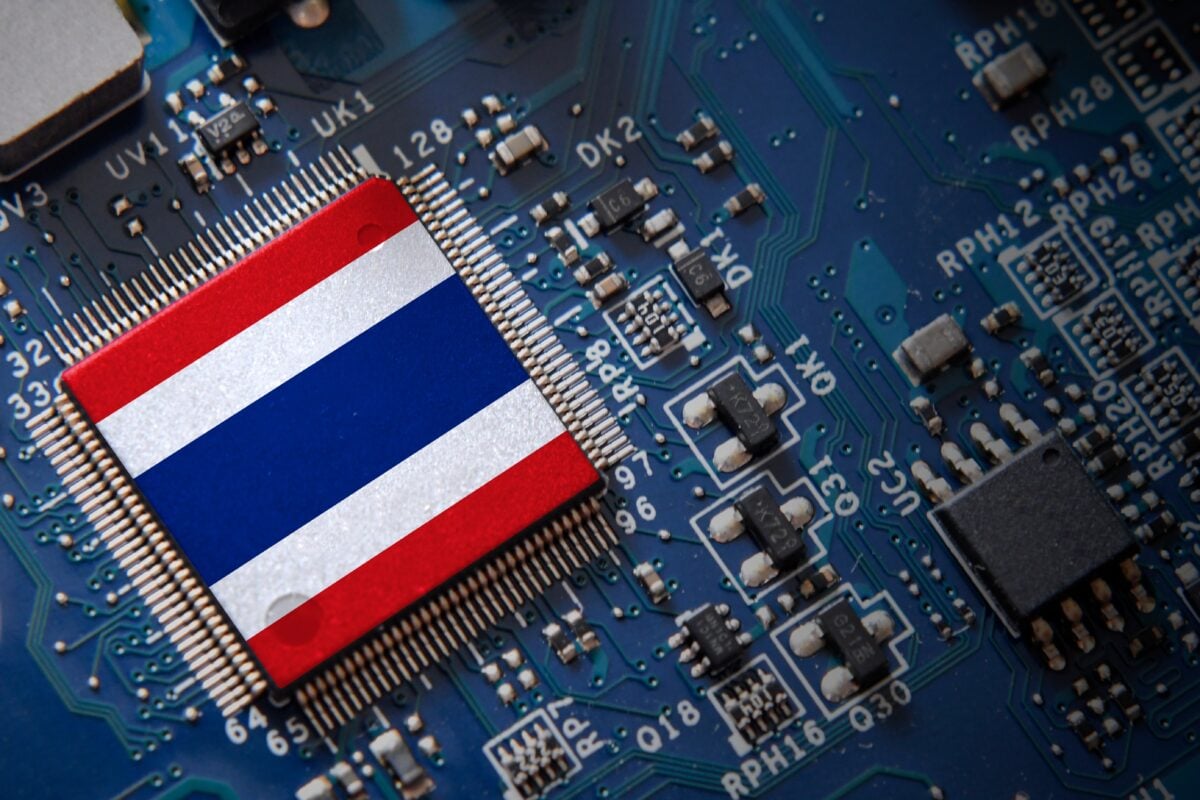TLDRs:
Contents
- Thailand’s semiconductor industry calls for national strategy to strengthen exports and local manufacturing.
- Global trade uncertainty pressures Thai chipmakers to seek government support for long-term planning.
- Private firms invest heavily in R&D despite absence of formal government semiconductor plan.
- Competitor nations like Malaysia gain advantage with established strategies and talent development frameworks.
Thailand’s semiconductor sector is urging the government to implement a comprehensive national strategy to navigate global trade challenges and boost export competitiveness.
Industry leaders point out that while countries such as Malaysia already have structured semiconductor plans, Thailand currently lacks a unified roadmap.
Naiyavudhi Wongkomet, vice president of the Thai Semiconductor Industry Trade Association, highlighted that uncertainty caused by shifting global production lines and US transshipment regulations is creating challenges for exporters.
He stressed the need for a coordinated long-term master plan, involving key government bodies like the Board of Investment, Ministry of Commerce, and Ministry of Foreign Affairs.
Local Manufacturing Needs Boost
Delta Electronics Thailand is one of the private firms showing strong commitment to developing domestic capabilities, investing approximately 8.3% of its revenue in research and development.
Kittisak Ngern-ngok-ngam, the company’s senior director, urged the government to target specific industry groups to strengthen local manufacturing and ensure a reliable supply chain.
“Developing local suppliers and fostering domestic talent are critical to sustaining growth,” Kittisak said.
This sentiment is echoed by industry analysts who warn that without government guidance, Thailand risks losing ground to neighboring countries with more structured policies.
Trade Tensions Pose Risks
Swaek Prakitritanon of the Thai Printed Circuit Board Association highlighted that trade tensions, non-tariff barriers, and energy sustainability challenges continue to threaten the sector.
He emphasized the importance of creating a skilled workforce and ensuring stable energy supplies to support semiconductor production.
Global semiconductor sales reached $59.0 billion in May 2025, a 19.8% increase from the previous year, with the Asia-Pacific region experiencing 30.5% growth. Thailand faces a strategic timing paradox of entering the market during a period of robust growth but without the institutional framework to fully capitalize on opportunities.
Private Sector Shows Confidence
Despite policy gaps, Thailand’s private sector demonstrates confidence in the industry’s potential. Companies like Delta Electronics are investing heavily in R&D, local procurement, and supply chain development.
These efforts suggest that private firms are already laying the groundwork for a “Made in Thailand” semiconductor ecosystem.
However, without government alignment and strategic planning, these investments may not reach their full potential. Competitor nations such as Malaysia, which have established national strategies, enjoy advantages in policy support, talent development, and global supply chain positioning.
Thai officials face the challenge of building institutional capabilities while navigating a complex geopolitical environment marked by US trade restrictions and increasing supply chain diversification pressures.
Thailand’s semiconductor sector clearly signals that private investment alone is not enough. Government action is urgently needed to establish a coherent national strategy, strengthen local manufacturing, and secure the country’s position in the rapidly expanding global semiconductor market.


